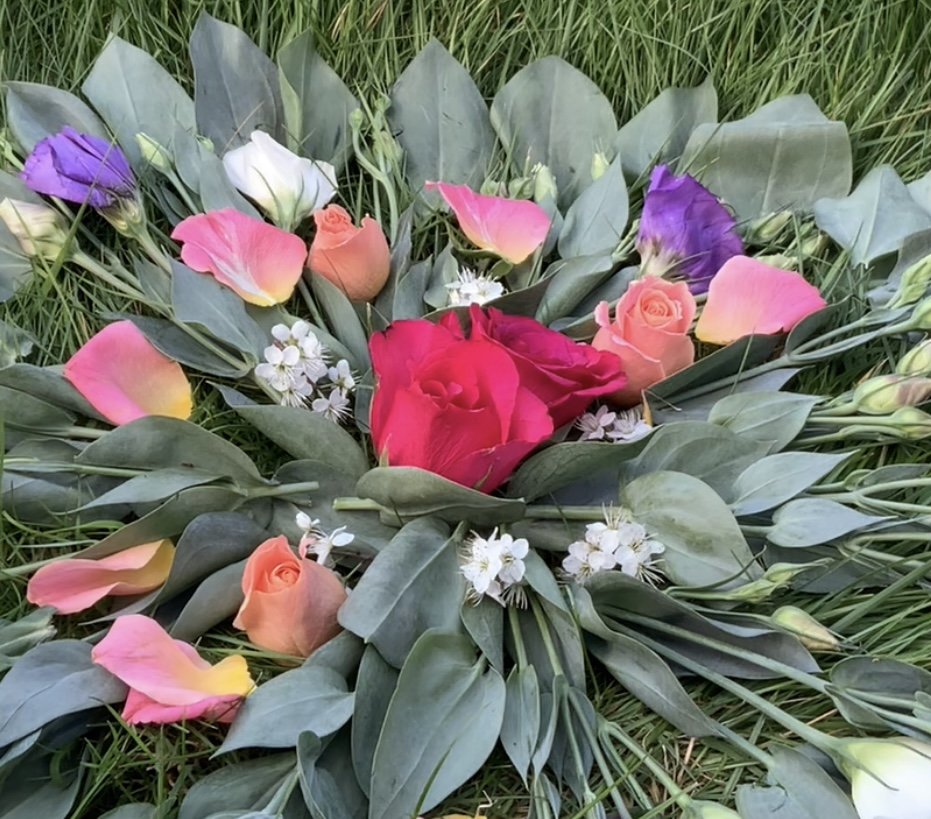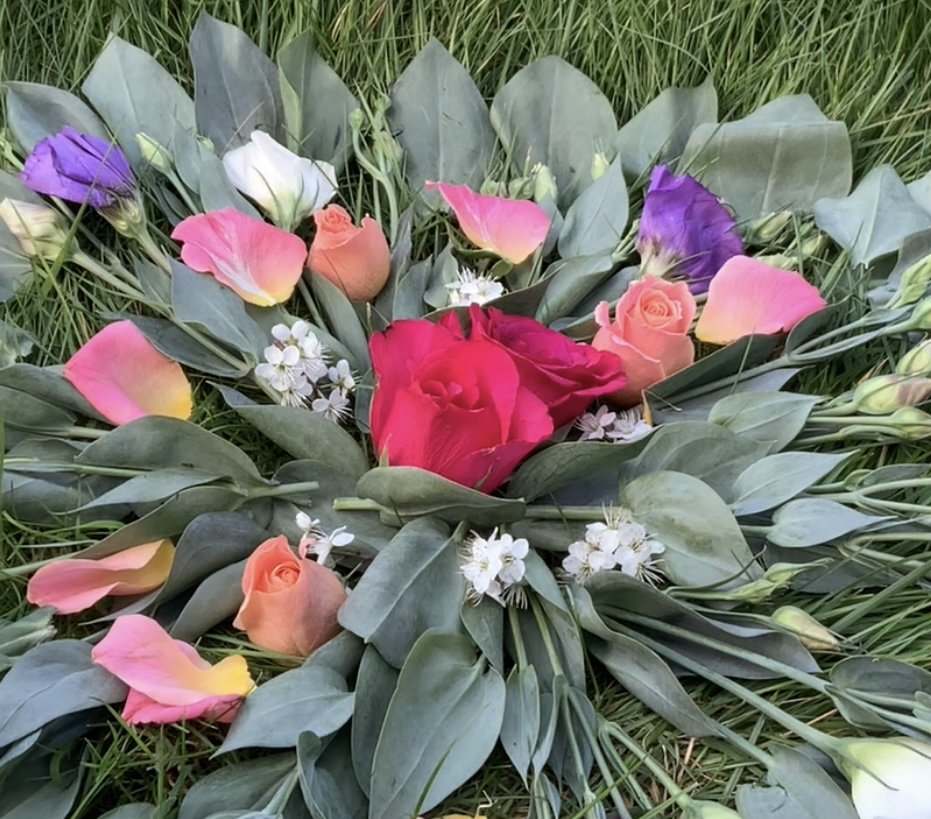
Celebrant Led Funerals
Why Choose?
Blog #001 in the “With The End In Mind” Series
For Families Experiencing Grief
If you’re reading this blog, chances are that you have lost someone close to you and are, probably, arranging their funeral.
If this is the case, I’d like to start by offering my most sincere condolences and, if you’re happy to accept, a huge ‘virtual’ hug.
So, if I was to say the word ‘funeral’, it’s possible that the image of something very traditional would ‘pop’ into your mind.
Because, back through time, most funerals followed a very traditional format.
Usually a service would have been held in the local parish church followed by a burial in the churchyard or cremation at the nearby crematorium.
And this would have occurred even if the deceased person had no religious affiliation nor was a regular churchgoer.
The service itself, would have followed a relatively religious based format that included hymns, prayers and a eulogy written and read by the parish priest.
But. . . what’s a celebrant?
Actually, the term ‘celebrant’ itself is not a modern one and according to the Cambridge Dictionary is:
“A priest who leads a religious ceremony or a person who leads a ceremony such as a marriage or a funeral”
So, this identifies that the role of a celebrant, whether religious or not, is as a creator of ceremonies
that honours important moments and times of transition in our lives.
But, what I find interesting is that, within recent times, more and more people have chosen to step away from their religious affiliations which has resulted in a call to honour these important
rites of passage in an alternative way.
One that, perhaps, is more aligned with personal beliefs, values and principles that really would create a ceremony celebrating their loved one’s life and honouring their legacy.
And, so the popularity of having civil (as opposed to religious) celebrants create and deliver these services began to rise.
So, how is a Celebrant different?
You’ll find that a celebrant led funeral is one that is totally individual and completely unique
Information regarding the deceased person is gained from the family and, yes, this includes the ‘linear’ information that tells their life story,
But, more than this . . .
The stories, the memories, their achievements and their learnings,
Their passions, what made them laugh and cry
And what made their hearts sing
Infused with pieces of their favourite music, poetry, readings, and family involvement
Then the basis of a truly memoriable ceremony is created.
And, if desired, there can be religious elements too - hymns prayers and bible readings can also be woven into the ceremony -
(although ceremonies offered by Humanist Celebrants are totally non-religious
So, if this is what a Celebrant is, how can choosing one help you create the meaningful ceremony you are wanting for your loved one?
What support does a celebrant offer?
When you lose a loved one, even if their death was expeced your world can be absolutely turned upside down
Having the support of a celebrant during these times can be of such benefit and comfort as they can guide you through the maze of ‘have to’s’ that are necessary at this time
Arranging a suitable farewell ceremony is part of this and a celebrant will usually visit you at home to help you create a service that really honours the life of your loved one
Yes, this will include the details such as important dates, family career and so on
But, more than this . . . as I’ve eluded to above.
Many will offer an availability for you so that you can speak to or email them if you have concerns or queries about the upcoming funeral and it’s this supportive relationship that can really make such a difference to you as you navigate this sad and difficult time
So. let’s talk a little about timing next
This may initially appear to be a bit of a strange inclusion here . . . but, having worked within the funeral industry
for a while, I saw that many people were choosing what is called a ‘direct cremation’.
This is where the persons physical body is cremated with little or no service.
And, this might be because of the cost implications of a full funeral . . . or, perhaps, for logistical reasons when family members are scattered across the globe . . . meaning there would be few, if any, attendees.
But, also, families often believe that the funeral they’re arranging needs to happen as soon as is possible (which isn’t always the case), yet the grief and distress that usually accompanies the loss of someone close can make it difficult to coherently create the ceremony they wish for.
So, how might it feel to give yourself time?
And then create the ceremony that you really want
when some of the rawness and mental fog, that goes hand in hand with grief, has begun to ease.
This would enable you to plan an occasion that really celebrates the life of the one you’ve lost with more energy, clarity and focus
and which is something that celebrants love to support families with. And this ceremony can also include additional aspects such as the interment or scattering of ashes or creating a lasting memorial with a headstone or the planting of a tree.
Perhaps, as we’ve mentioned timing, it seems prudent to mention living funerals or living celebrations of life
Now, this is where a person, perhaps someone who’s elderly or has been given a life limiting diagnosis, takes an active part in their own life celebration party . . . giving them the opportunity to plan the send off of their choice whilst hearing the stories, reliving the memories, being able to say or hear the “I love you’s”, the “I’m sorry’s” and being the catalyst for healing any hurts or rifts before the opportunity is lost forever.
Okay, let’s consider location next
A Celebrant can hold a funeral ceremony pretty much anywhere, except for a space that’s designated a religious place of worship
These ceremonies can be held graveside at natural burial grounds, or council run cemeteries or within the chapel at a local crematorium.
That said, there’s nothing to prevent you from holding a ceremony at your local village hall, hotel or a much loved or significant location - or even your own back garden
If you choose to work with a Celebrant for a Celebration of Life or an Ashes Ceremony then, again, these can take place in many more locations than you might consider
On a beach, up a mountain, or at some other scenic, significant or special place might be just perfect for a memorable ceremony.
And then including music, memories, candles, fireworks and other significant details can make this a truly unique and memorable occasion.
Thank you for taking the time to read this, and I hope you found the information useful.
I wrote this to give you an idea of how a Celebrant can enhance your farewell ceremony in a unique and compassionate way . . . that will not only bring comfort to you in your grief but is, also, an essential part in healing the pain and loss that is so usual following the death of a loved one.
If this has sparked any questions . . . or you feel I can help in any way then please get in touch here.
With love Annie xx






